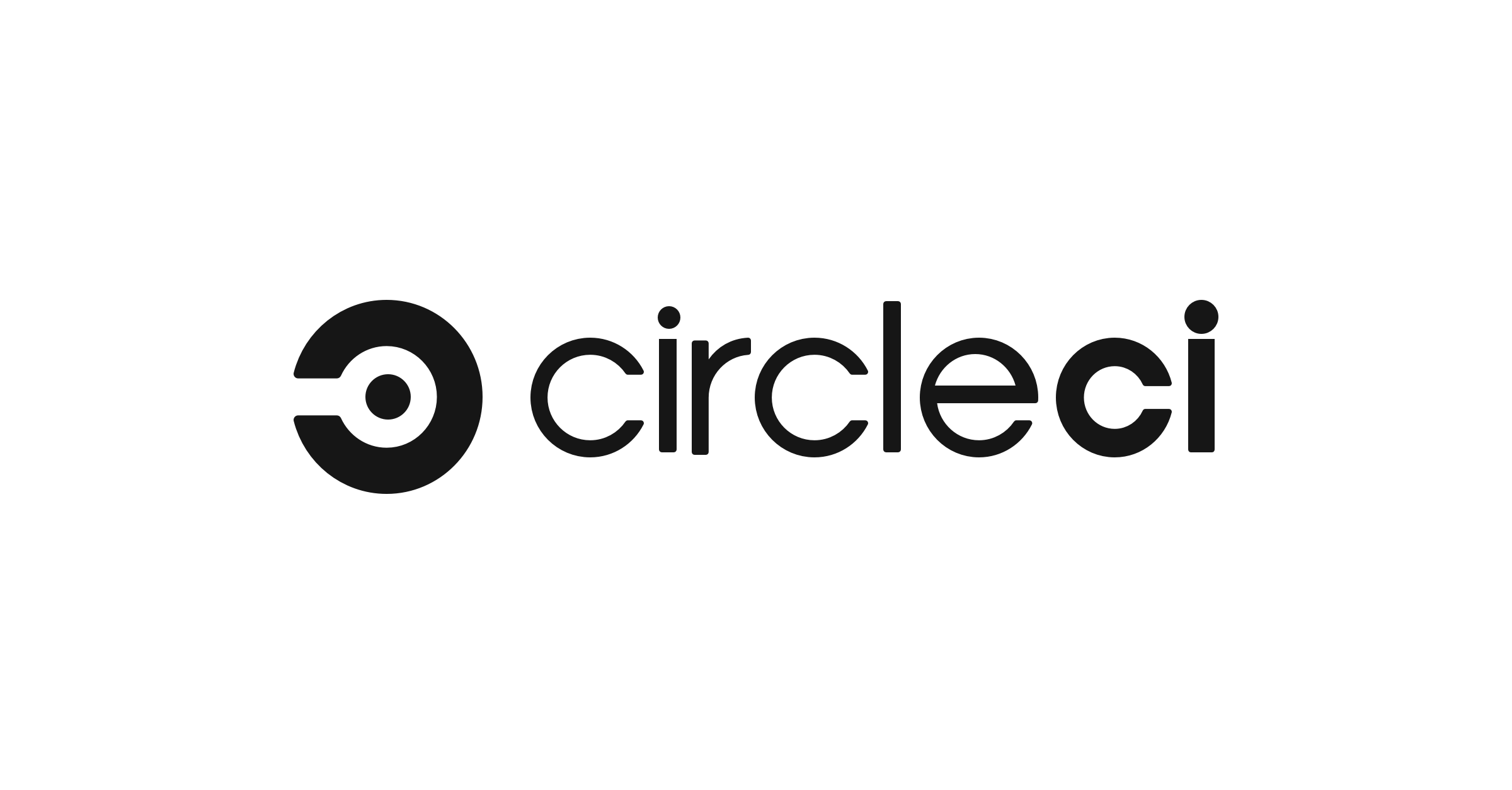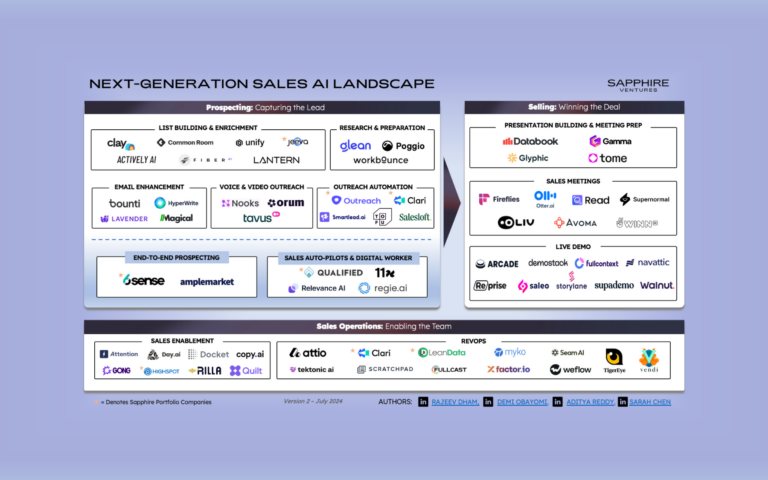Just as COVID-19 began to emerge as a healthcare and an economic threat in early April, Sapphire Ventures was proud to have announced its investment in CircleCI. Since then, the need for tools like CircleCI, which enable development teams to quickly release trusted code by automating the build, test and delivery process, has only accelerated.
Many companies are now software ones, rapidly releasing new software and applications to meet the demands of customers and partners. The challenge is that traditional software development and deployment processes are slow and inefficient, making it difficult for companies to move fast. By adopting DevOps tools like CircleCI, companies can accelerate software development and deployment with a holistic approach that encourages collaboration and communication between teams. With CircleCI, software teams can automate repetitive tasks while building and deploying software, scale execution and support, be more productive and reduce the complexity of managing different environments.

When I first met with CircleCI’s CEO Jim Rose more than four years ago, he was one of the only CEOs focused on the DevOps market and who understood how profoundly it was going to change the way software is built and deployed. Over the past few years, I have watched Jim execute on his vision building CircleCI into a leading DevOps company. I’m excited to be on this DevOps journey together with Jim and the broader CircleCI team. Following our recent investment, I recently sat down with Jim to discuss why he joined CircleCI, the demand for DevOps and partnering with Sapphire. Here’s what he had to share:
You joined CircleCI a few years after it was founded. Can you talk about when and why you joined?
CircleCI was founded in 2011. I joined in 2014 when CircleCI acquired Distiller, a mobile testing app I founded with our current CTO Rob Zuber.
As a six-time founder, it would be fair to call me a serial entrepreneur. Perhaps surprisingly, most of my companies before Distiller (and then CircleCI) were in the consumer space. What unites those experiences is a relentless focus on quickly finding product-market fit by solving real problems for users, and constantly iterating, refining and pivoting until you get there. That ability to deliver change quickly is what we provide at CircleCI.
CircleCI is the leading platform for continuous integration and continuous delivery. CI/CD is the practice of building, testing and deploying incremental changes in your codebase so that you can deliver value to users faster, at a higher quality and at scale. Writing software and delivering it to users is still an incredibly complex process. We automate that complexity so teams can focus on solving problems for users.
We’re the factory floor for digital goods.
What is going on in the industry right now that’s driving demand for a solution like CircleCI?
There’s so much uncertainty in the market right now. The transition to working from home has a huge impact on how teams operate, but the demands for getting software to market have not let down. In fact, the need for engineering teams to deliver updates and features have increased as companies are scrambling to adjust to rapidly changing market conditions.
CircleCI is an automation solution for helping teams get code to market more quickly, so we’re seeing a big uptick in interest due to that increased urgency for companies to be more agile. A lot of teams had DevOps initiatives on their roadmaps already, but shelter-in-place has accelerated that need to transform their processes and tooling. At a practical level, if you were managing your build pipeline on machines under a desk in your office, all of a sudden that becomes an untenable way to solve the problem of getting code to customers. Enter CircleCI.
Can you talk a little bit about your journey since joining CircleCI?
It’s been fun for us to see how our growth and maturation has matched that of our customer base. When we started, our customers were mostly small startups. Now, we’re also working with global, Fortune 500 companies.
Recently, our focus has been on international growth. In 2018, we took our first step to investing in our global customer base and opened an office in Tokyo. We did a lot of research and spoke to our existing customers. Based on those conversations, we decided against going with traditional operating models of expansion, where you set up a sales office and focus on building a base from there. Instead, we focused on building localized customer support to make sure we were helping our customers be successful with CircleCI.
What are you looking forward to as you move into your next phase of growth?
We’re seeing more companies waking up to the reality that the world is being eaten by software. They’re realizing that their relationship with customers is being intermediated by a screen, and that screen is being driven by a piece of code.
When CircleCI started, CI/CD was a kind of niche, bleeding-edge practice. Now, we’re seeing the market accelerate like never before as companies prioritize automation and continuous delivery systems. No matter what market you’re in, speed and quality are incredibly important. The ability to create change and put it into the hands of the customers as quickly as possible is key. We’re motivated to be the mission-critical component to help our users stay resilient.
Why are you excited to partner with Sapphire Ventures?
When I approach fundraising, it’s more about the people behind the investment that I’m interested in, rather than the dollar amount.
You, Jai, and the team at Sapphire Ventures have decades of experience in the enterprise software market and deep knowledge in the DevOps space that is invaluable for us as we continue to grow our business. We’re proud to join the other DevOps companies in Sapphire’s portfolio including Auth0, InfluxData, JFrog, PubNub and Sumo Logic.
How do you plan to leverage the latest investment?
Over the last nine years, and especially over the last two years, we’ve seen more traditional companies realize that they’re also software delivery companies in many ways, and so they’re trying to adopt continuous delivery practices. Many of these are well-established, more recognizable brands, but they’re earlier in their digital transformation phase.
They require more education, support and assistance to help them and their team get up to speed. Our latest round of capital allows us to create dedicated tools and resources, along with specialized teams to guide these customers along their adoption process, while ensuring reliability and stability in a market full of uncertainty.
From a product perspective, we’re doubling-down on our insights and extensibility capabilities to continue supporting our users to solve the most complex software delivery challenges.
Are you doing anything to help companies get started with CircleCI given the current economy?
We’ve always had a freemium model in place and find it useful for small or one-person developer teams to get their products or services up and running quickly.
It’s free to start building on CircleCI and only requires a GitHub or Bitbucket account to sign up.
Want to hear more from Jim alongside CircleCI CTO, Rob Zuber and CRO, Jane Kim? Apply to attend the Sapphire Ventures CIO Summit 2020.




